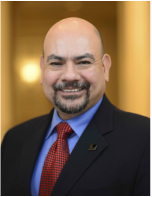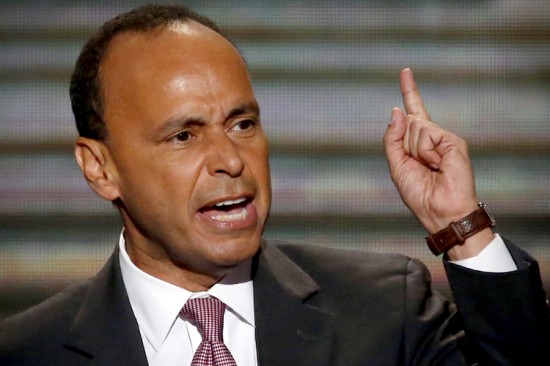GOP 'hurting themselves' with kids of illegal immigrants
By Cristina Marcos, The Hill
By Cristina Marcos, The Hill
Rep. Luis Gutierrez (D-Ill.) said Thursday that Republicans are "hurting" their long-term electoral prospects by opposing President Obama's executive actions to shield certain illegal immigrants from deportation.
Gutierrez argued that the children of illegal immigrants won't warm to the GOP, noting that more than 90 percent of Latinos under 18 living in the U.S. are citizens.
"They will not have a warm and fuzzy feeling about the party that fought tooth and nail to throw out their moms and dads," Gutierrez said in a House floor speech."This is what my colleagues fail to appreciate when they stand alongside hardliners and opponents of legal immigration: In their zeal to deport non-citizens, Republicans are hurting themselves with citizens," Gutierrez said.
Gutierrez, a vocal proponent of immigration reform, suggested that some Republicans believe there is a "caste system" in the U.S. where immigrants don't mix with people who were born in the country.
"In my district in Chicago, just like the rest of the country, there is no caste system where people who were born in the U.S. never mix up with people who weren't born here," Gutierrez said. "When we celebrate the Fourth of July or Thanksgiving, believe it or not, we all sit at the same table."
Funding for the Department of Homeland Security (DHS) will expire Friday at midnight unless Congress can pass a bill in time. But a path forward is unclear in the House, where many hard-line conservatives refuse to support a "clean" DHS bill that doesn't prohibit funding for President Obama's executive actions.
The original House bill that revoked the executive actions was unable to secure the necessary 60 votes in the Senate to advance.
"The Republican Party’s goal of forcing this president to deport all the non-citizens they want deported will simply never be achieved until the Republican Party elects one of their own to the White House," Gutierrez said. "And the strategy of the Republican Party - forcing this president to deport all the non-citizens they want deported - pretty much guarantees that one of their own isn't going to get to the White House any time soon."
Gutierrez argued that the children of illegal immigrants won't warm to the GOP, noting that more than 90 percent of Latinos under 18 living in the U.S. are citizens.
"They will not have a warm and fuzzy feeling about the party that fought tooth and nail to throw out their moms and dads," Gutierrez said in a House floor speech."This is what my colleagues fail to appreciate when they stand alongside hardliners and opponents of legal immigration: In their zeal to deport non-citizens, Republicans are hurting themselves with citizens," Gutierrez said.
Gutierrez, a vocal proponent of immigration reform, suggested that some Republicans believe there is a "caste system" in the U.S. where immigrants don't mix with people who were born in the country.
"In my district in Chicago, just like the rest of the country, there is no caste system where people who were born in the U.S. never mix up with people who weren't born here," Gutierrez said. "When we celebrate the Fourth of July or Thanksgiving, believe it or not, we all sit at the same table."
Funding for the Department of Homeland Security (DHS) will expire Friday at midnight unless Congress can pass a bill in time. But a path forward is unclear in the House, where many hard-line conservatives refuse to support a "clean" DHS bill that doesn't prohibit funding for President Obama's executive actions.
The original House bill that revoked the executive actions was unable to secure the necessary 60 votes in the Senate to advance.
"The Republican Party’s goal of forcing this president to deport all the non-citizens they want deported will simply never be achieved until the Republican Party elects one of their own to the White House," Gutierrez said. "And the strategy of the Republican Party - forcing this president to deport all the non-citizens they want deported - pretty much guarantees that one of their own isn't going to get to the White House any time soon."



